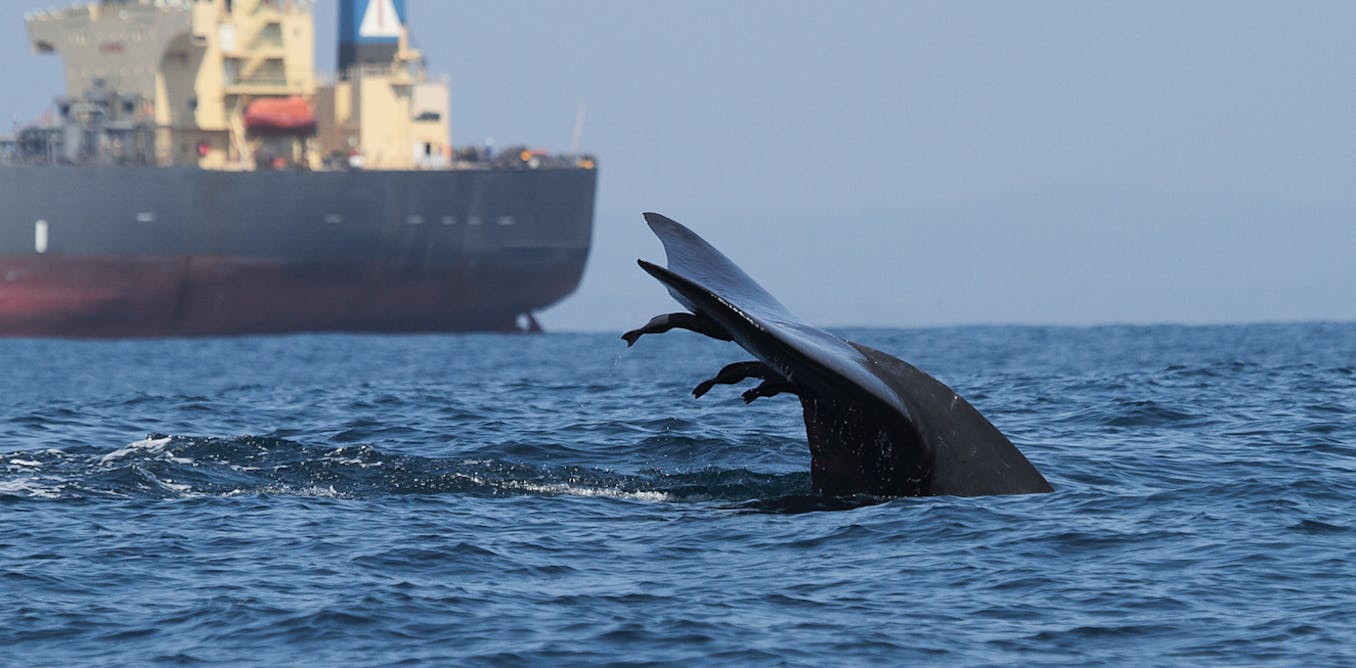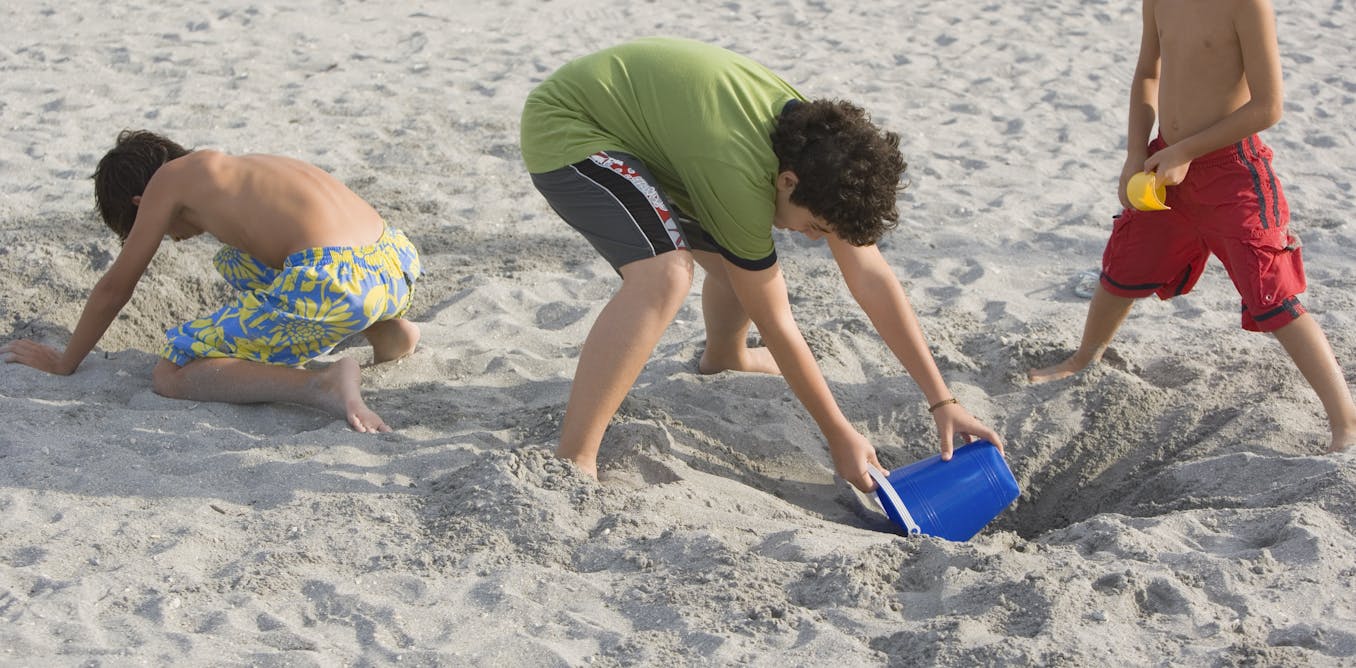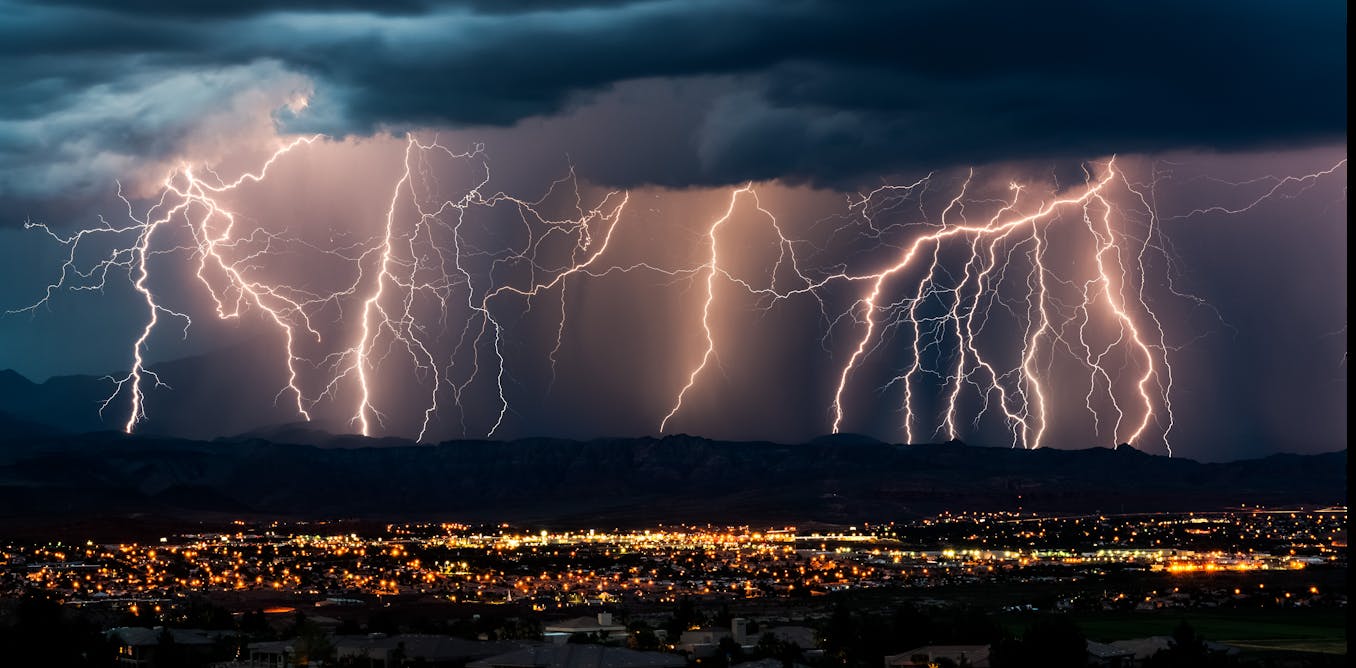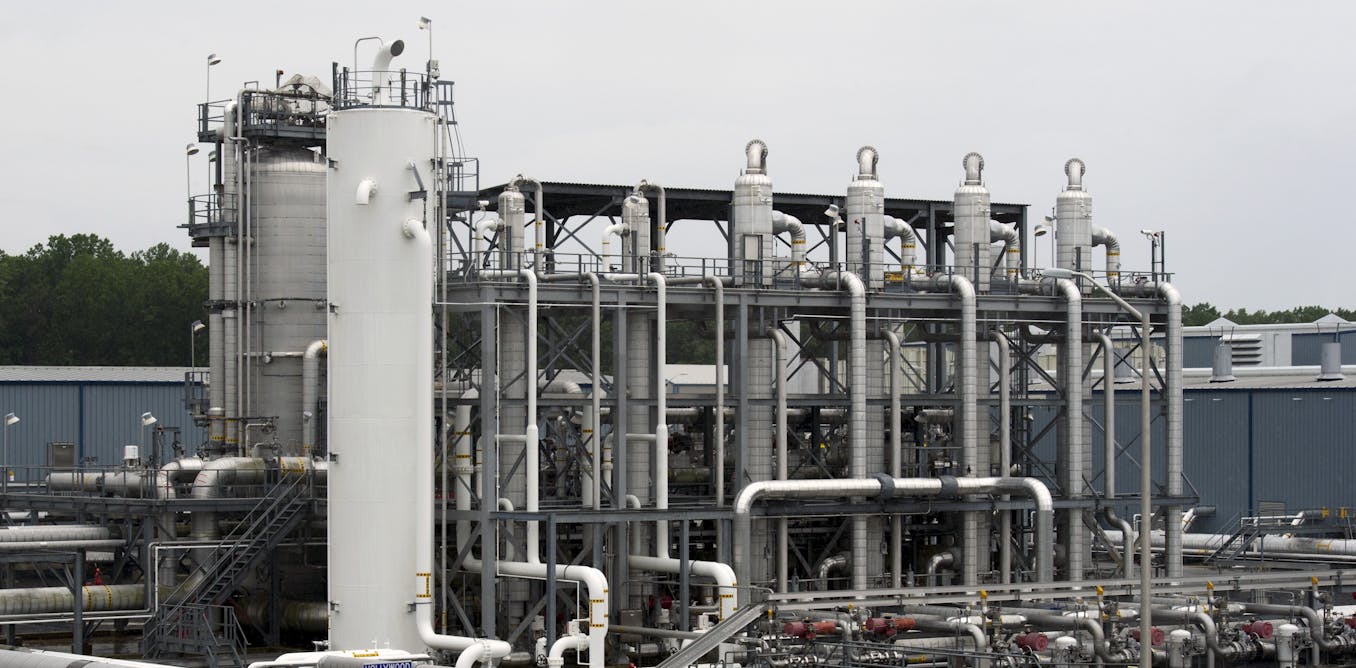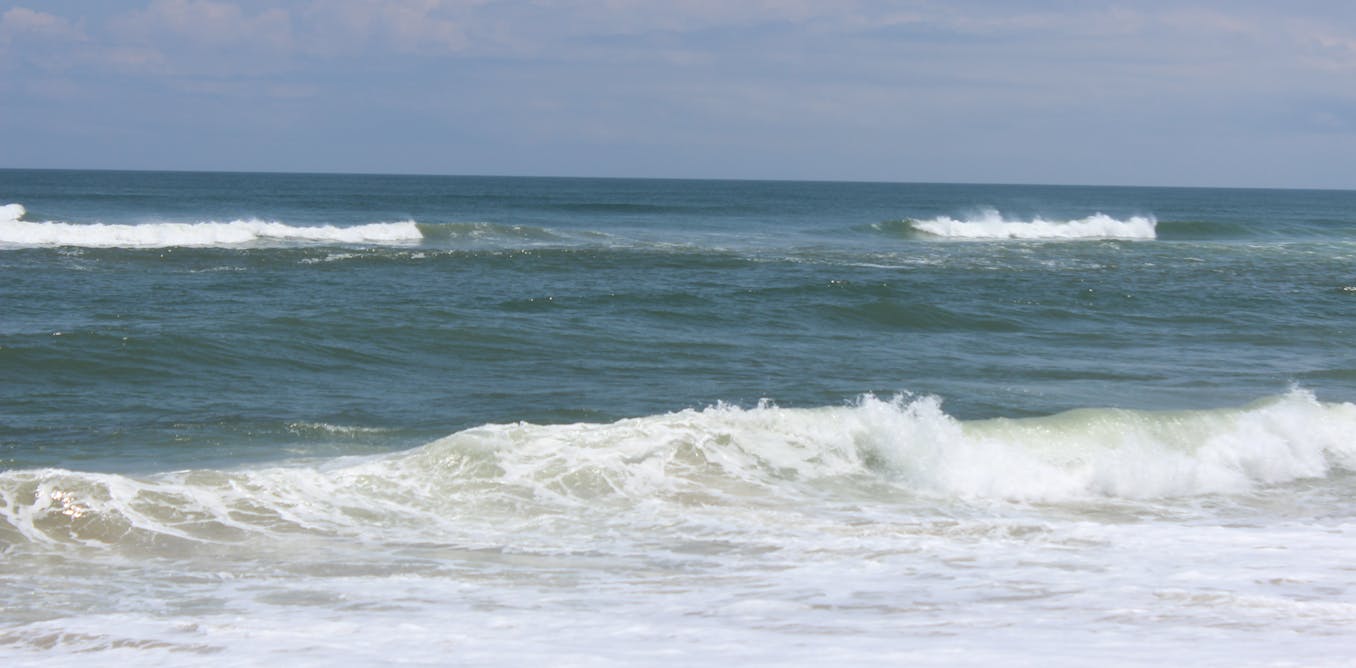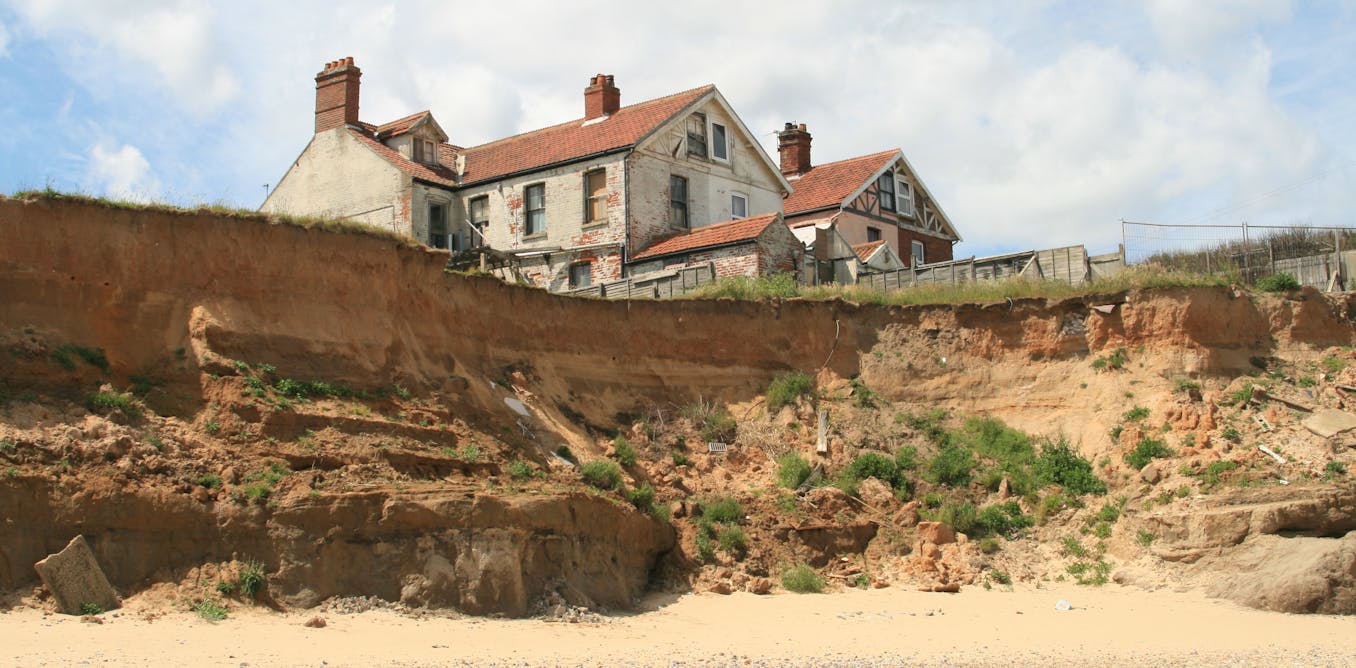New maps show high-risk zones for whale-ship collisions − vessel speed limits and rerouting can reduce the toll
Colliding with ships is a top cause of whale deaths. A new study maps the areas of highest risk, showing where proven strategies such as speed limits and new shipping routes can reduce the toll.
Nov. 21, 2024 • ~9 min
Coastal cities’ growing hurricane vulnerability is fed by both climate change and unbridled population growth
Fast population growth has left more people in flood-prone areas of Gulf Coast communities, including Houston and New Orleans. Often, those residents at most risk are the most socially vulnerable.
Sept. 11, 2024 • ~7 min
Baby bull sharks are thriving in Texas and Alabama bays as the Gulf of Mexico warms
The Gulf Coast has seen big jumps in baby bull shark numbers. As adults, these are among the most aggressive species of sharks, but the babies aren’t cause for concern, as three scientists explain.
July 17, 2024 • ~8 min
Dig safely when building sandcastles and tunnels this summer – collapsing sand holes can cause suffocation and even death
Kids love digging and may not realize the dangers a hole in the sand can pose.
July 9, 2024 • ~7 min
Where does lightning strike? New maps pinpoint 36.8 million yearly ground strike points in unprecedented detail
A new study shows how often lightning strikes and how it behaves, often hitting the ground with multiple strikes from the same flash.
Feb. 27, 2024 • ~7 min
Biden’s ‘hard look’ at liquefied natural gas exports raises a critical question: How does natural gas fit with US climate goals?
The US, a minor liquefied natural gas supplier a decade ago, now is the world’s top source. That’s good for energy security, but bad for Earth’s climate. An energy scholar explains the trade-offs.
Feb. 7, 2024 • ~8 min
Rip currents are dangerous for swimmers but also ecologically important – here's how scientists are working to understand these 'rivers of the sea'
Rip currents are a leading cause of near-shore drownings, but there are effective ways to survive one. And these phenomena also play important ecological roles that are an emerging research area.
July 21, 2023 • ~8 min
Flood risk ratings: Translating risk to future costs helps homebuyers and renters grasp the odds
Telling people they have a flood risk rating of 10 is less powerful than explaining how much they’re likely to pay to deal with flooding over the next five years.
July 28, 2022 • ~7 min
/
3


